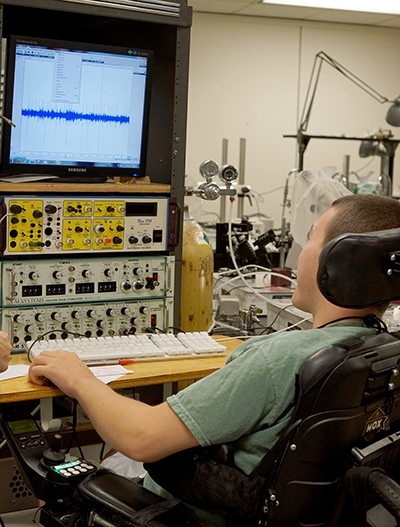The Thread: Disability and Employers
Below are excerpts from recent conversations in our online mentoring community related to disability disclosure and accommodations in the workplace. This gives you the flavor of the many rich conversations the DO-IT community has online. Forum posts are edited for clarity and brevity.
I’m interested in observations and experiences with disability accommodations in industry and academia. I’m aware that, legally, the obligation should be same, but I also know that lived experiences can diverge from what is supposed to happen.
AccessSTEM Team Member: In my experience, industry is a million times more accommodating. I think the problem is academic institutions are so large and so competitive, and to be successful you are essentially required to sacrifice your mental and physical health, even if you’re not disabled. To get accommodations requires massive amounts of paperwork, doctor’s notes, meetings, disclosures, and even then the accommodations you get may not be adequate. But, when I was hired at my current company as a chemist/polymer scientist, I told them about my disabilities (latex allergy, need to sit for many tasks), and they completely redid the lab to remove all latex gloves without even asking for a doctor’s note. There’s no judgment about needing to ask for time off or help doing a task.

AccessComputing Team Member: It doesn't really matter if industry is better in general about accommodations. It only matters what the disability culture is like at the specific place you are considering working. If industry is generally better, but the place you are interviewing at isn't, then it doesn't matter. If academia is generally worse, but the place you are interviewing is really positive and progressive, then it doesn't matter what other institutions are like.
AccessComputing Team Member: Perhaps the question would be better phrased "In which sector would I be more likely to find an accommodating workplace culture?"
I am at a point in my education where I need to make some decisions that will affect my readiness for a career in either industry or academia. The question at the moment is whether I should put significant time/energy into learning how to teach, and, in the process, I would need to find or invent teaching methods that work for me and my disability.
AccessComputing Team Member: I have been a rehabilitation engineer for almost twenty-eight years now and have seen every situation you can imagine. The hardest part about making your decision is similar to what prospective students have to do now when they think about prospective higher ed programs. Finding out what the actual culture of the organization you intend to interact with is the most important thing. Unfortunately, finding a network that can vouch for the organization is another story. Cast your net as wide as possible among all the people that you know and have them help scout out every place you are interested in, whether it is private industry or academia.
DO-IT Mentor: Someone had commented that you should cast a wide net and explore many possibilities to find something that suits you. I agree with this strategy. However, in all likelihood, you need to limit yourself at some point to going the academic or the industrial route. Go with your passion on this decision, then cast a wide net.
DO-IT Mentor: Both inclusive/non inclusive workplaces may provide the same accommodations because they have to, but the inclusive workplace is going to be more supportive. You may find co workers and supervisors are more comfortable with “difference” at an inclusive workplace and the workplace bias’ that can ultimately discriminate against people with disabilities in subtle and overt ways will be less. So, ask about diversity and inclusion in your interviews. Do some research. What do you see or hear at a potential workplace?
DO-IT Mentor: Ask and examine prospective employers from the standpoint of inclusivity. If they demonstrate and talk about diversity, but not inclusion, then what that may tell you is that they are more about meeting the regulatory requirements as far as accommodating disabilities. They will do what they have to do. That is the letter of the law as far as disability accommodations.